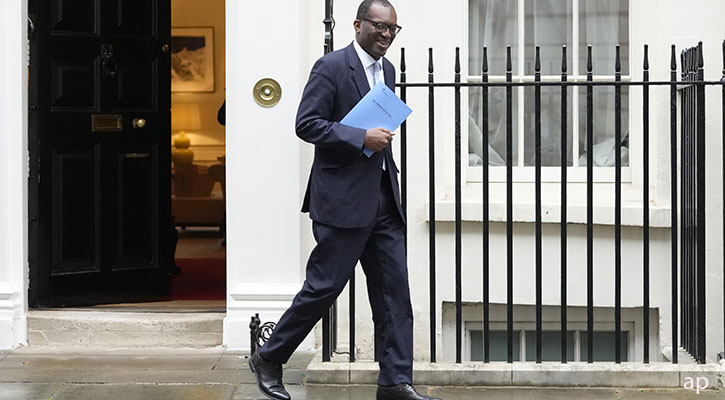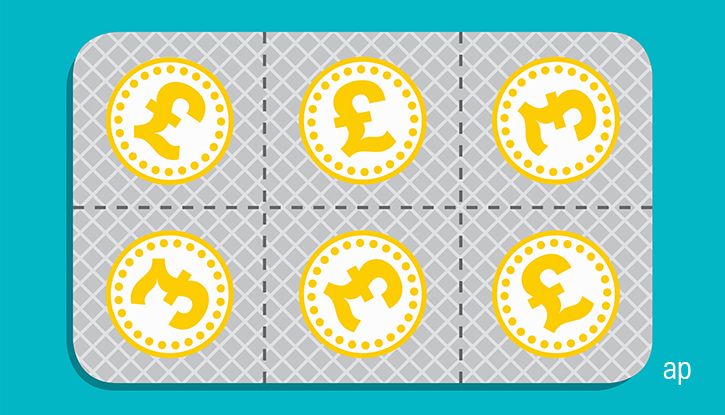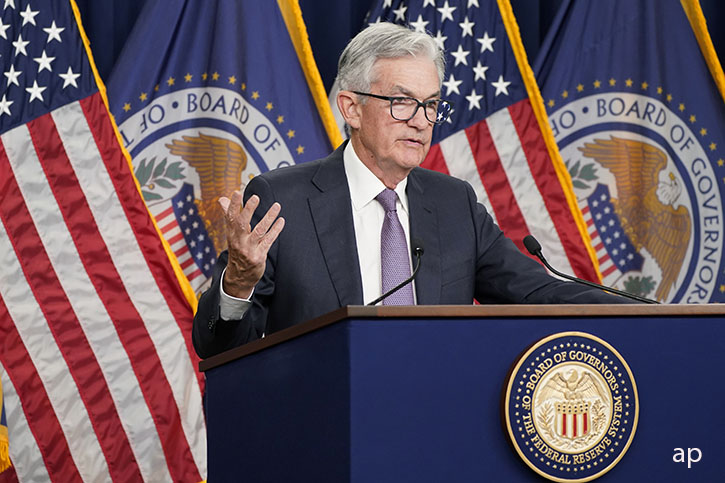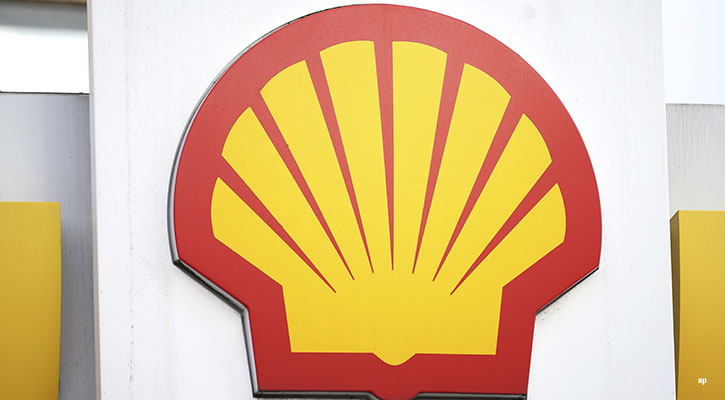
New chancellor Kwasi Kwarteng unveiled his mini-budget today, introducing a range of tax-cutting measures in an effort to jump-start Britain’s ailing economy, what he calls the "vicious cycle of stagnation".
Labelled as the slightly vague sounding “growth plan 2022”, the announcements were very specific, from changes to personal taxation, and cuts to stamp duty. Of course today's policies have to be seen in the light of the wider economic picture and recent intervention in the energy market: interest rates are now at 14 year highs after the Bank of England's latest decision and inflation is still close to 10% (see chart).
Changes to stamp duty and national insurance were trailed by the media ahead of today’s announcements, but the cut to the additional rate tax band was very much unexpected. As the table below shows, home buyers will not pay any stamp duty up to £250,000, double the current level, with additional incentives for first-time buyers.
Readers will recall that the Conservative government, under former chancellor Rishi Sunak, introduced a “temporary” stamp duty holiday during the Covid crisis that boosted the price of homes even further. These latest changes are designed to improve home ownership but could end up stimulating the price of property below the £425,000 first-time buyer threshold, as happened in 2020-2021.
This April national insurance contributions were hiked to pay for adult social care, a policy that had been controversial among the party faithful but seen as necessary in light of the pandemic. Sunak partially U-turned on this policy, meaning that average earners were actually better off in the new tax year.
Today’s policy will fully reverse April’s changes but the government insists that the social care provision will remain in place. This move will take effect in November, Kwarteng said. Another U-turn came in the form of corporation tax, which was due to increase from 19% to 25% next April - this reverses a Sunak-era policy which would have made the first increase in company tax since 1974. At the time the chancellor saw businesses making a contribution to the post-pandemic recovery, in what he called a "fair and necessary" move.
The scrapping of the additional tax rate of 45% from next year caught the media on the back foot. This super higher rate, which is paid by those earning £150,000 or more a year, was introduced in the wake of the financial crisis by the last Labour government as a way of raising additional revenue and as a sop to public opinion, which blamed higher earners like bankers for the financial mess. The government said today that the move is designed to "improve the attractiveness of the UK as a place to work relative to other countries".
Kwarteng also lifted the caps on bankers’ bonuses introduced in that period. So the highest rate of tax from next year will be 40%, and the basic rate is also going to be lowered from 20% to 19%.
Investor News
Amid the flurry of headline-grabbing changes, a number may have fallen between the cracks. Kwarteng talked of encouraging entrepreneurs, innovation (of course) and fostering a "share-owning democracy", a deliberate echo of the Thatcher era privatisation.
To this end changes have been made to the Seed Enterprise Investment Scheme (SEIS). The annual investor limit will be doubled from next April to £200,000 and companies will be able to raise up to £250,000, a 66% increase (the gross asset limit will increase to £350,000).
Seed investment attracts wealthy investors looking for higher returns from (higher risk) early-stage companies. They offer chunky tax breaks (up to 50% initial relief and CGT exemption, subject to holding limits) for those who have used up all their standard ISA allowances, and the SEIS isn't generally used by the average investor, who may struggle to fill the £20,000 limit. If in doubt whether the SEIS is appropriate for you, please seek independent financial advice.
Similarly, the government said it "remains supportive" of the Enterprise Investment Scheme (EIS) and venture capital trusts (VCTs), "and sees the value of extending them in the future".
There was also some dividend news. A 1.25 percentage point increase in dividend tax rates was due from April 2023 and that has been scrapped. This could save the 2.6 million people who pay dividend tax to save an average of £345. The scrapping of the additional tax bracket will also benefit some investors. "This will support entrepreneurs and investors across the UK to drive economic growth," the government wrote in today's statement. The ordinary and upper rates of tax will go back to 7.5% and 32.5% levels seen in the 2021-2022 tax year. Most investors can generally shield dividends with their ISA limits, so again this change is likely to impact higher net worth individuals. People also have a £2,000 dividend allowance every year.
Dividend Rates, CGT and Income Tax
Again, this is a rowing back on previous policies: in April 2022 the dividend tax rates were hiked to 8.75% (basic rate), 33.75% (higher rate), and 39.35% (additional rate). Eagle-eyed readers will notice that the additional rate is similar to the higher rate of income tax but the basic rate is way below the 20% tax threshold. This has incentivised some entrepreneurs (and their families) to take income from the businesses as dividends rather than as salaries.
Capital gains tax rates are also not aligned with income tax rates, with 10% and 20% tax rates (that's 18% and 28% for residential property sales).
One idea that has come around again and again is the idea of having fixed tax bands (basic and higher) across dividends, income and CGT. This will be difficult to implement and likely to disadvantage some (wealthier) parts of the electorate as we approach the election in 2024-2025. Put simply, dividend and CGT rates of 19% and 40% are going to hit the wealthiest the most.
There are also changes to the Company Share Option Plan (CSOP) - from next year qualifying companies will be able to issue £60,000 of shares, up from the current level of £30,000.
What About the Markets?
One statement by Kwarteng that attracted some scoffing from opposing benches was the idea of the government pursuing a "responsible approach to the public finances". The markets, including currency, bond and stock, are nervous about the tax cutting and spending agenda of this new Truss regime. Mel Stride MP asked how the chancellor plans to "reassure" the markets that these tax plans make sense. John Glen MP asked Kwarteng how monetary policy could be tightening while fiscal policy (taxes) could be loosening. The chancellor insisted the two approaches could be reconciled: the Bank of England and HM Treasury are separate and have different aims, the Bank's to control inflation and the government to simulate growth.
The FTSE 100 and All Share are down 2% today, and there were very big increases in gilt yields (UK five year up 54 basis points to 4.09% and UK 10 year up 29 basis points to 3.78%). The pound has fallen from $1.12 to $1.11 today and from 1.15 to 1.13 euros.
5pm update: The pound has now fallen to $1.09 and is worth 1.12 euros.
Bond Yields Surge - M&G's Leaviss Responds
M&G's CIO of public fixed income Jim Leaviss notes the strong adverse reaction from bond markets: "It’s fair to say that the gilt market hated today’s mini-Budget.
“Gilt yields have risen sharply in response to a combination of unfunded tax cuts (the cut to the highest rate of income tax, for example, was not expected) and the energy support measures (which were expected and are generally thought to be necessary). In what has already been a weak period for government bonds thanks to global inflation and central bank rate hikes, the UK has stood out as an underperformer."
"Whilst the market is worried about the massive increase in government borrowing, the tax cuts for both households and corporates should reduce the severity of the expected recession (yesterday the Bank of England said we are likely already in a recession), and hence inflation may not fall by as much as anticipated.
“About 25-30% of the UK gilt market is held by overseas investors – the famous quote is that we ‘rely on the kindness of strangers’ to finance our budget deficits. Having suffered disproportional losses in the gilt market via both the underperformance of gilts and the weak currency, there might be some reassessment of the UK by these investors – although arguably its cheapness now might attract bargain hunters."
A Budget Statement Without Nuance
The mini-budget received a lukewarm reception from the financial industry and is being called out for favouring those able to weather the cost-of-living crisis over those most in need of support.
Rob Morgan, chief investment analyst at Charles Stanley says: “There is a startling lack of nuance or targeting in this mini-budget; energy, tax, and investment have been solved with simple sweeping measures. A prime example of this is income tax. A planned 1p income tax cut has been brought forward by a year, to 2023, and the additional rate of income tax of 45% is to be scrapped. Whilst the 1p cut might help some consumers meet the rising costs over the coming months, high earners will feel most benefit. Others will likely feel left out in the cold.”
According to Darius McDermott, managing director of Chelsea Financial Services, the tax changes will put more money back into people’s pockets, but it won’t help bring inflation down, so interest rates will increase.
“It will be welcomed by most parts of the population as everyone is struggling with the cost-of-living crisis, and it is good for small businesses, but it has added considerably to the nation’s debt and could push inflation higher, he says. “It may turn out to be a stroke of genius, but it could also backfire and make the situation worse. It’s a bit of a gamble and is adding extra uncertainty to an already uncertain outlook.”
Will Stevens, head of financial planning at Killik & Co, says: “The removal of the additional rate represents one of the most significant income tax changes in recent times, which will deliver a substantial tax saving to the UK’s highest earners. They will also benefit from the abolition of the additional rate of dividend tax.
“However, the longer-term effect of this could apply further pressure to already high levels of inflation and there is fear that future generations will be left to pick up the bill for tax cuts made now.”
Susannah Streeter, senior investment and markets analyst, Hargreaves Lansdown, says the budget collides with the Bank of England’s measures to stifle inflation.
“There are signs that buyers of UK government bonds are becoming even more nervous about the government’s ‘splash the cash’ policies, given the mounting debt pile. With inflation set to head above 10%, the Bank of England has warned it will be more aggressive if necessary if the measures brought in by the Truss government inflame hot prices further. Gilt yields have risen again as the scale of the spending has become clear.”





























